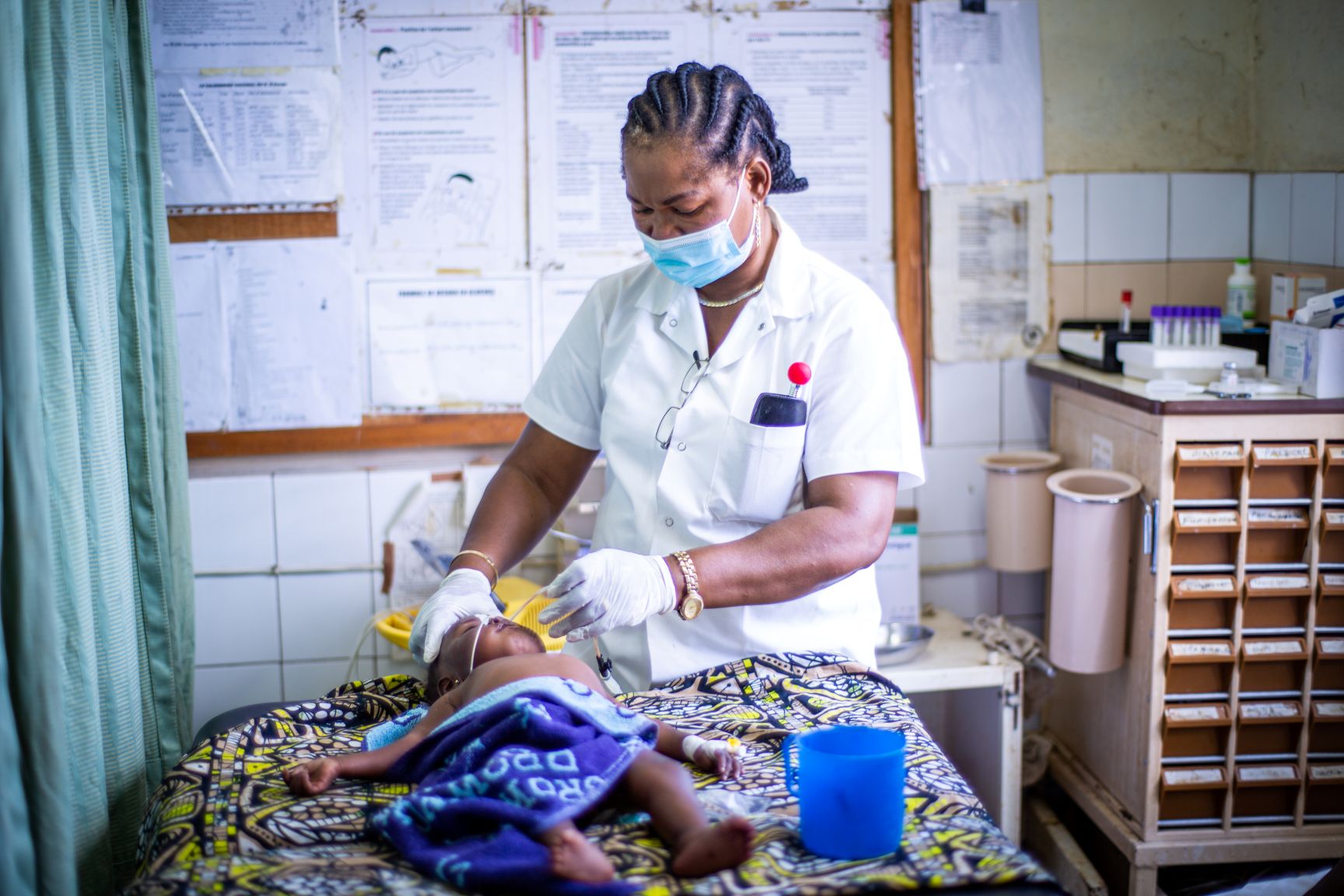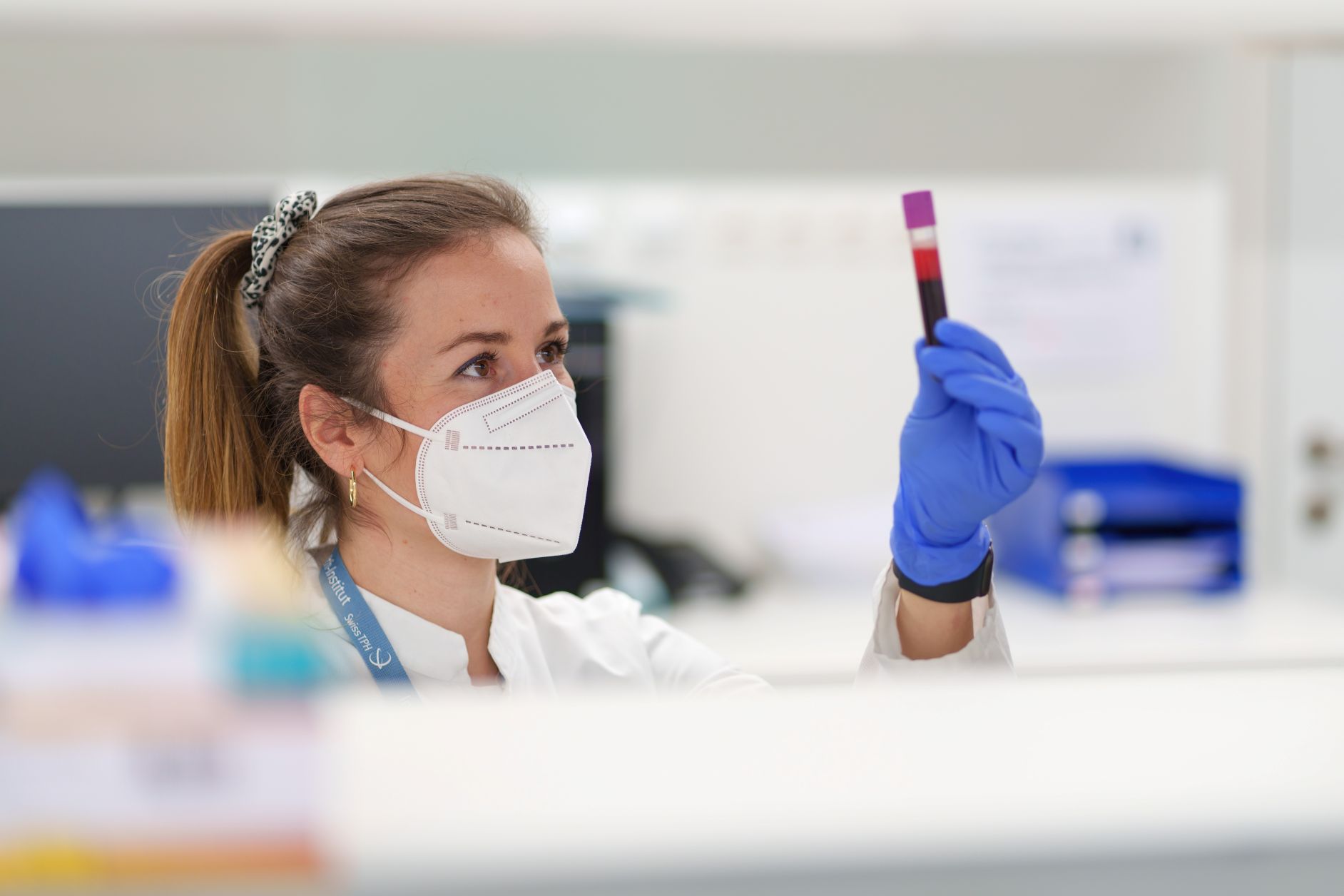
For decades, global health has been a success story. Investments in research and development, innovation, and public health have saved millions of lives, strengthened health systems, and expanded access to care for the world’s most vulnerable. But that progress is now at risk. And the implications extend far beyond the Global South. They reach also right here, into Switzerland.
Eva Herzog, President of the Swiss TPH Board of Governors, reflects why it's time for Switzerland to lead and not retreat in global health.
Global Health Under Pressure
In recent months, we have witnessed a dramatic shift in global health funding. The decision by the United States — historically the world’s largest funder of global health — to dismantle USAID and drastically cut public health spending and research budgets has far reaching consequences. In the past years, USAID invested approximately USD 10 billion per year in areas ranging from malaria, tuberculosis and HIV to neglected tropical diseases, family planning and health systems strengthening.
Today, those funds are gone. Practically overnight, millions of people have lost access to quality diagnosis and life-saving medicines. Long-standing Swiss partners, such as the Ifakara Health Institute in Tanzania, have already had to lay off staff and suspend critical malaria programmes. Experts estimate that, in 2025 alone, these cuts could result in 15 million additional malaria cases and over 100,000 deaths.
Beyond these immediate impacts, the broader rollback of U.S. public and global health engagement — from cuts to disease surveillance and reduced access to data, to shifting priorities in prevention and growing constraints on research institutions — poses a serious challenge to our collective ability to monitor, detect and respond to emerging health threats.

Why Switzerland Should Care
While these changes may seem distant, their consequences are anything but. In a globally connected world, the weakening of the global health architecture inevitably affects Switzerland. If the COVID-19 pandemic taught us anything, it’s that viruses don’t stop at borders. Dengue fever, spread by the invasive tiger mosquito, is already being transmitted in European countries — and the mosquito is now firmly established in Basel and other parts of Switzerland. It is only a matter of time before local transmission becomes a reality here as well. Outbreaks of avian influenza, Mpox and other zoonoses have shown how quickly infectious diseases can cross continents and expose gaps in preparedness.
In this context, robust surveillance systems, international cooperation, and strong health systems are a first line of defense — offering protection far beyond the countries where outbreaks begin by enabling early detection, quick response, and comprehensive containment.

Return on Investment
The relevance goes beyond public health: global health is also a driver of innovation and a core element of economic competitiveness. Switzerland is home to one of the world’s leading life sciences ecosystems. Global companies such as Novartis and Roche, the biotech industry, as well as academic institutions such as ETH Zurich and EPFL, our universities, and global health institutes such as Swiss TPH are not only contributing to international health solutions — they also benefit from these engagements – as our young academics do.

As does Genève Internationale with major global players such the World Health Organization, the Global Fund, GAVI and many more. Since the new millennium health agencies procured hundreds of millions of Swiss francs in goods and services from Swiss-based companies. Actors in Switzerland consistently rank among the top suppliers of diagnostics, medicines, logistics, and technical services — from large corporations to specialised SMEs. The return on investment in Switzerland is massive!
What’s more, Swiss expertise — from mental health and food safety to digital epidemiology and regulatory frameworks — is increasingly valued by partner countries. This exchange is not only technical but also a form of science diplomacy, strengthening Switzerland’s role as a trusted international partner. At the same time, innovations from low-resource settings — such as cost-effective home care or decentralised service delivery — offer insights we can apply in Switzerland. This mutual trust and learning builds resilience and extends our global impact.
Institutions at Risk
Despite these benefits and the global impact, Swiss global health institutions face growing uncertainty. The ripple effects of the U.S. withdrawal and shrinking global contributions to multilateral agencies like the Global Fund, Gavi, and WHO are already being felt. Swiss TPH is experiencing these effects as well — both in Tanzania and Ukraine — as recently described by Swiss TPH Director Jürg Utzinger.
However, instead of ramping up its support, the budget of the Swiss Agency for Development and Cooperation is under pressure. The 2025–2028 programme reallocates 15% of the development budget to Ukraine. While understandable, this comes at the expense of long-term partnerships in sub-Saharan Africa and Asia, where Switzerland has built decades of trusted collaboration.
At the same time, research funding is at risk: Potential cuts to the Swiss National Science Foundation would undermine the very projects that drive innovation, build Swiss expertise, and ensure that our solutions remain relevant on the global stage.

A Call to Lead, Not Retreat
Switzerland has always punched above its weight in global affairs. In health, this leadership is not only welcome — it is necessary. We have the institutions, the expertise, and the international credibility to make a difference.
Now is not the time to turn inward. Quite the opposite: now is the moment to reaffirm our commitment to global health — not just as an act of solidarity, but as a strategic investment in our own resilience, prosperity, and security. Let us not allow short-term cuts to jeopardise long-term impact.
I remain convinced: investing in global health is one of the smartest, most forward-looking choices we can make. For the world — and for Switzerland.

Dr. Eva Herzog is the President of the Swiss TPH Board of Governors and a member of the Swiss Council of States. She represents the canton of Basel-Stadt.